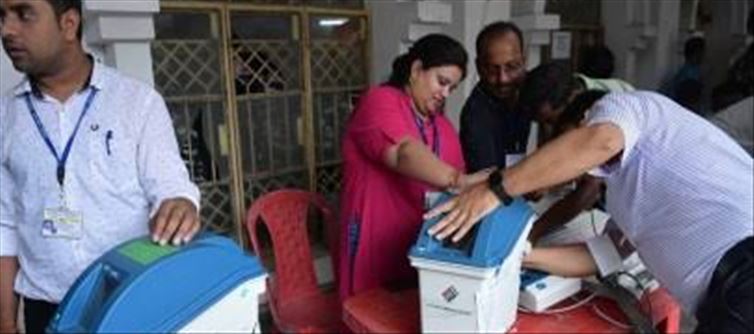
VVPAT Admit Card Case: Argument in supreme Court; Postpone to april 18!
Important arguments were advanced by the petitioner in the VVPAT admit card case. The VVPAT machine is equipped with an electronic voting machine to confirm to whom the voters cast their votes. Once a person has cast their vote, the voter can check their vote recorded on the VVPAT acknowledgment slip for 7 seconds.
The Democratic Reform Organization has filed a petition in the supreme court asking the election commission and the central government to issue guidelines to verify whether the votes recorded in the electronic machine have been counted in the voting machine. Similarly, social activist Arun Kumar Agarwal has also filed a petition in the supreme court that instead of comparing only the acknowledgment slips in the selected 5 electronic voting machines with the total votes, 100 percent of the acknowledgment slips should be compared with the registered votes.
When the case came up for hearing in the supreme court today, the supreme court adjourned the hearing at 2 pm, asking the petitioners to explain with statistics how the votes recorded in the EVM-VVPAT machines could not match 100%. Accordingly, during the trial, when the admit card machine was finalized in 2017, it was equipped with transparent glass. But after that, they changed it to a glass that can be seen from inside only when the bulb is lit. It was argued by the petitioner that now the voters do not even know whether the acknowledgment slip falls in or not.
The petitioner also argued that most european countries have reverted to the ballot system. The judges who intervened then said that the number of voters in india was only 50, 60 crores in the 1960s. Currently, there are more than 97 crore registered voters. Even though an average of 65 percent of the vote, the judges questioned when all the votes would be counted. The petitioner replied that when the election commission takes more than six weeks to conduct an election, there is nothing wrong with the election commission spending a few extra hours to verify the admit card. It is to be noted that earlier in its affidavit, the election commission had informed the supreme court that it would take 12 days to complete the counting of the total votes cast in the parliamentary elections.
Subsequently, the advocates of the petitioner suggested that the bar line system should be used in ballot papers and VVPAT tickets. Then, the intervening judges, every time it turns out to be a huge task to come up with such methods. Not only that but wherever there is human intervention, there will be all kinds of problems, including one-sidedness. Judges opined that when machines operate without human intervention, they often give correct results. The election commission says that electronic voting machines cannot be misused in any way. It was argued by the petitioner in the supreme court that just because it has not been abused so far, no one can guarantee that it will not happen again in the future.
If 200 electronic voting machines are used in a constituency, only two percent of the admit card machines are verified. It was contended by the petitioner that it should be ordered to verify it 100%. The directors of companies that manufacture electronic voting machines belong to the Bharatiya Janata Party. That is why the credibility of this is in question among the public, the petitioner's lawyers pointed out. Further, "In the 2019 election, when we analyzed the data in the election commission state-wise, some private companies found that there were discrepancies in about 373 constituencies. The votes cast in Kanchipuram, Madurai, and Dharmapuri lok sabha constituencies did not tally with the counted votes.” The petitioner side presented important arguments, After recording these arguments, the supreme court adjourned till april 18 the hearing on the petitions seeking 100 percent verification of the votes recorded in the voting machine with the VVPAT admit card machine.




 click and follow Indiaherald WhatsApp channel
click and follow Indiaherald WhatsApp channel